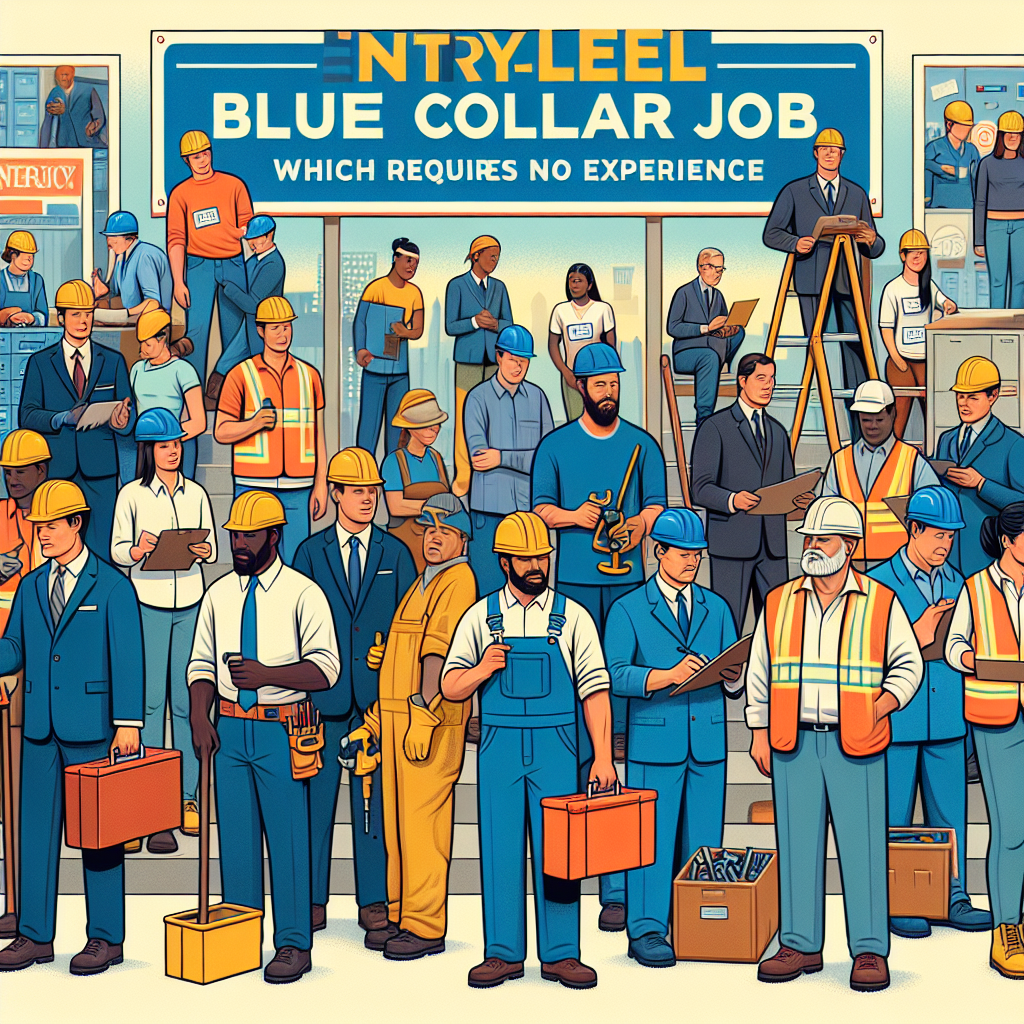Entry Level Blue Collar Jobs No Experience: Latest Trends and Updates is a useful snapshot for anyone starting a hands-on career without prior work history. Demand for practical trades has shifted in the last few years — employers are increasingly hiring and training motivated candidates, and new pathways like apprenticeships and short training bootcamps make it easier to enter the workforce quickly.
Where hiring is growing for new entrants
Certain sectors continue to show strong hiring for entry-level blue-collar positions: construction, warehousing and logistics, utilities, and some manufacturing sub-sectors. Labor shortages and a wave of retirements have opened opportunities for people who can pass basic safety checks and demonstrate reliability. Employers often prioritize soft skills such as punctuality, teamwork, and a willingness to learn over formal experience.
Key changes and hiring trends for entry-level workers
Recent trends reflect both economic forces and technology adoption on the shop floor:
- More employer-sponsored on-the-job training and apprenticeship programs, allowing hires to earn while they learn.
- Increased use of digital applications and mobile hiring platforms for quick screening and scheduling of interviews.
- Emphasis on transferable skills — employers look for problem-solving, basic mechanical aptitude, and safety awareness.
- A shift toward certifications (like OSHA 10, forklift operator) that can be completed in days or weeks and improve hireability.
Apprenticeships and short courses
Apprenticeships remain a reliable route into trades such as plumbing, electrical, HVAC, and carpentry. Short certificate programs and community college courses can also bridge the gap for applicants with no prior experience. Many community colleges partner with local employers to tailor curricula and provide direct hiring pipelines.
Use of job boards and student-focused resources
Job boards focused on early-career and student audiences can be a good source of entry-level blue-collar listings. For students or recent graduates balancing school and work, comprehensive lists of free and paid job boards help target opportunities efficiently — see this ultimate guide to job boards for college students in the USA — free and paid options for practical sites and tips aimed at early-career job hunters.
What employers expect from no-experience applicants
Hiring managers for blue-collar roles typically screen for basic qualifications and fit. Expect to see requirements like:
- Legal right to work and ability to pass background or drug tests.
- Basic physical fitness and capacity for manual labor.
- Willingness to attend short safety training or obtain entry-level certifications.
Highlight volunteer construction, school projects, or any hands-on hobbies on applications — these demonstrate aptitude and commitment even without formal job experience.
Compensation, advancement, and long-term prospects
Entry-level wages vary widely by industry and region, but many blue-collar tracks offer fast pay increases once workers gain certifications and experience. According to government labor data, occupations like construction laborers and tradespeople generally have solid demand and clear advancement paths; see the U.S. Bureau of Labor Statistics overview for details on job duties, pay, and outlook.
BLS occupational outlook for construction laborers and helpers
Tips to stand out as an applicant
- Get one or two short certifications (e.g., OSHA 10, forklift license) to show initiative.
- Create a simple resume emphasizing reliability, any hands-on projects, and willingness to learn.
- Be flexible on shifts and locations early on to gain experience quickly.
- Network locally — trade unions, community colleges, and workforce centers often have direct leads.
FAQ
Q: Do most entry-level blue-collar jobs require a degree?
A: No. Many roles require a high school diploma or equivalent at most. Employers value practical skills and reliability; certificates and apprenticeships are more important than formal degrees.
Q: How fast can I move from entry-level to a higher-paying role?
A: Progress depends on the industry and your efforts. With consistent work, certifications, and on-the-job training, some workers advance within 1–3 years to higher-paying technician or supervisory positions.
Q: Are background checks common for these roles?
A: Yes, many employers require background and drug screenings for safety-sensitive or security-related positions. Being honest and prepared helps the application process.



